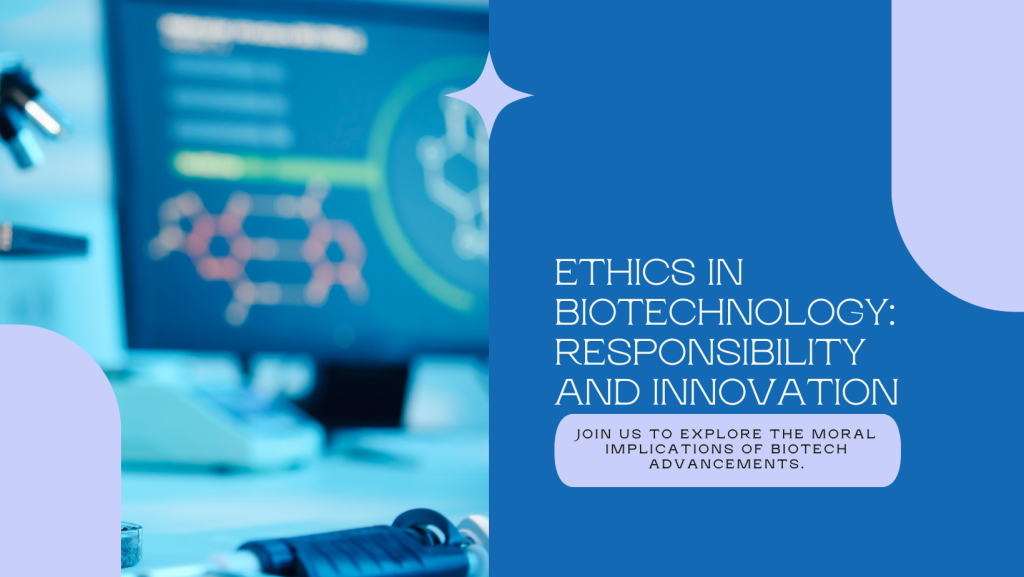In the age of biotechnology, where groundbreaking advancements hold promise for improving healthcare, agriculture, and environmental sustainability, ethical considerations are paramount. As scientists manipulate genetic material, engineer living organisms, and develop novel therapies, the need to balance innovation with responsibility has never been more pressing.
At the forefront of ethical concerns is the potential for unintended consequences and unforeseen risks. Genetic engineering, for example, raises questions about the long-term impact on biodiversity and ecosystem stability. Similarly, gene editing technologies like CRISPR-Cas9 pose ethical dilemmas regarding the alteration of human germline cells and the potential for heritable genetic changes.
Furthermore, issues of access, equity, and justice loom large in the biotechnology landscape. Concerns about the equitable distribution of biotechnological innovations, including gene therapies and genetically modified crops, highlight the need to ensure that advancements benefit all segments of society, especially marginalized communities.
Ethical considerations also extend to privacy, consent, and data security in the era of big data and personalized medicine. As biotechnological advancements generate vast amounts of sensitive genetic information, safeguarding individual privacy and ensuring informed consent are critical to maintaining trust and integrity in research and healthcare practices.
To navigate these ethical complexities, stakeholders must engage in transparent dialogue, adhere to rigorous ethical guidelines, and prioritize the principles of beneficence, non-maleficence, and justice. By fostering a culture of responsible innovation and ethical governance, society can harness the transformative potential of biotechnology while upholding fundamental values and ensuring the well-being of present and future generations.


